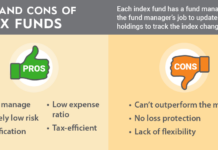Buying a house is one of the most challenging undertakings for anyone. It’s not just about moving from one neighborhood to the other but also the financial management part. Most homebuyers seek financing to pay for a house, leading to a mortgage application.
Applying for a mortgage is not always a smooth sailing process. Your overall credit rating could affect how much financing you get from the financing institutions or whether you qualify for financing.
But what happens when the seller is already servicing a mortgage for the home? Should you apply for a new mortgage, or should you assume the current mortgage for the property?
Assumable Mortgages Explained
It’s a type of mortgage financing where a buyer of a property with an outstanding mortgage balance takes over the mortgage terms and balances of the current mortgage instead of applying for a new mortgage. It’s assumable since the seller is transferring the outstanding mortgage and the buyer is assuming the mortgage payer’s role.
With assumable mortgages, everything remains the same- from the interest rate agreements to the mortgage term, principal amount, insurance, and property taxes. For example, if the seller has a 7% mortgage for 25 years, which is already 10 years old, the buyer assumes the mortgage at 7% for 15 years.
Pros of Assumable Mortgage
For the Buyer
- If you don’t have a good chance of getting a new mortgage loan on your own, an assumable mortgage might make your dream of becoming a homeowner come true.
- If the current market interest is high, an assumable mortgage with a lower interest rate helps you save money by avoiding a high-interest mortgage loan.
For the Seller
- It might make it easier to sell the property, especially when the prevailing interest rates are high. A buyer will probably consider assuming a mortgage with an interest rate of 4.5% compared to a higher rate.
- As a seller, you are also in a position to sell the property at a higher asking price, especially when the mortgage rate is lower than the prevailing market rate.
Cons of Assumable Mortgage
For the Buyer
- The down payment could be expensive, mostly when the property’s market value has gone up. For example, the seller bought the house for $300,000 and has a balance of $250,000 on the mortgage. However, the value of the property has appreciated to $400,000. The seller will need to make a down payment of $150,000 to close the deal. Unless you have savings to cover for those types of payments, the only other option available is to get second financing on the property to raise the down payment amount. The second mortgage will probably have a higher interest rate and a longer repayment period than the assumable mortgage, making it more costly.
How to Assume a Mortgage
If you still want to assume a mortgage, you must follow all the legal steps, like applying for a new mortgage. The agreement between you and the seller needs to be in writing and with the lender’s approval.
The lender still wants to know whether the potential homebuyer is creditworthy. That means providing proof of your financial status and credit reports. As the buyer, you might have to pay extra costs like an assumption fee, pull your credit reports, and search for the property’s title.
The good news is that the lender will probably not require an appraisal. If the lender is pleased with your creditworthiness, they will release the seller’s liability for the mortgage, and you can assume their position.
Apart from the selling process, one can also assume a mortgage through death or spouse divorce. The lender will still want proof that the assuming party can keep up with the mortgage’s monthly payments.
Is Assuming a Mortgage a Good Move For You?
It will depend on your financial situation, an assumable mortgage can be both a good or a bad thing. If the interest rate of the assumable mortgage is low and you can afford the down payment without a second mortgage, an assumable mortgage might be a good deal. However, if the down payment is very high, and the interest rate is also high, maybe servicing two mortgage loans will not be ideal if it will further strain your financial position. In any case, you can talk with your financial advisor or keep looking for better property deals.












